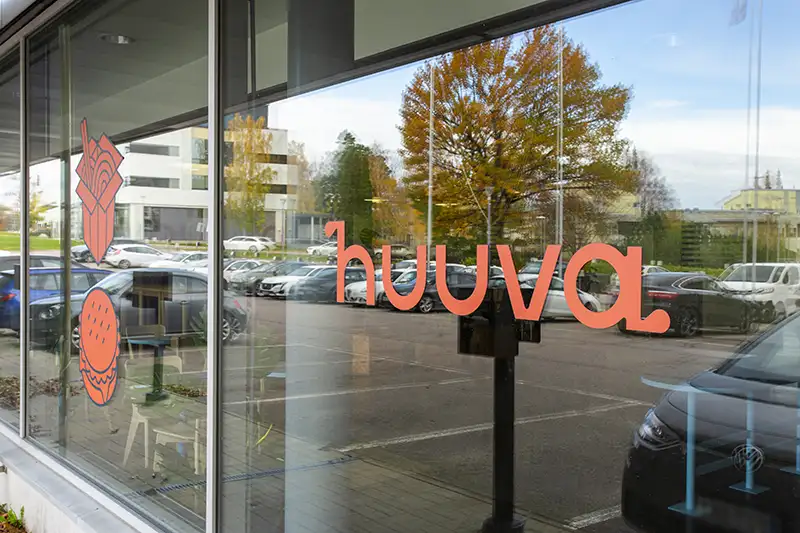FlowHero Case Study:
Mandatum
Niittytaival 13
In Mandatum’s office building, kitchen ventilation was controlled by a timer, which was a compromise between energy efficiency and indoor air quality. The control was upgraded to FlowHero’s demand control, achieving both. Now, Mandatum is considering a broader rollout of the solution.
Customer's savings per year:
Carbon Footprint
Energy Consumption
Energy Costs
Payback Time
Financial benefits, stricter regulations, and tenant expectations drive property owners to improve energy efficiency. In real estate, new methods to reduce energy consumption and utilize energy more effectively are constantly being sought.
Mandatum Asset Management manages a large property portfolio across Finland. Mandatum is committed to sustainability and the goals of sustainable development in all its managed properties. The goal is to reduce energy consumption by 15% by 2025 compared to 2015, in line with the energy efficiency agreement.
Mandatum has systematically implemented an energy investment program in its properties for a long time
In energy efficiency projects, Mandatum has analyzed different HVAC system options and the impact of measures to improve energy efficiency.
One major energy-consuming area in many Mandatum properties is commercial kitchen ventilation, which can use well over 100 megawatt hours of energy annually. Energy is consumed when thousands of liters of heated or cooled air are removed per second through kitchen and dish area hoods. Powerful fans also use a lot of electricity.
Typically, the property owner, not the tenant, pays for the energy costs of ventilation and building services, so Mandatum aimed to achieve savings in kitchen ventilation energy consumption and carbon emissions.
Balancing between energy savings and indoor air quality in commercial kitchen ventilation
In commercial kitchen ventilation, balancing energy savings and indoor air quality is a common challenge. Typically, kitchen staff requests for increased ventilation are met to ensure tenant satisfaction, but this leads to higher energy consumption.
Traditionally, commercial kitchen ventilation is controlled by a timer-based schedule in building automation, which relies on fixed exhaust air volumes.
This scheduled control leads to a compromise between energy efficiency and good indoor air quality, as ventilation needs vary throughout the day and season, and fixed settings make it challenging to achieve both goals.
Demand control can achieve both energy savings and good indoor air quality, keeping tenants satisfied
Mandatum decided to reduce energy waste in its commercial kitchens by testing the Finnish FlowHero demand control system.
FlowHero upgrades professional kitchen ventilation to demand-based control with a small investment. Demand control ensures good indoor air quality efficiently because it uses real-time sensor data on kitchen usage and air quality instead of fixed settings.
Mandatum chose the Niittytaival 13 office property in Espoo as the pilot site, which, in addition to modern and energy-efficient office spaces, also houses a popular takeaway restaurant, Huuva.
FlowHero reduced energy consumption and costs by 25%
Huuva, located in Mandatum’s property, represents a new wave of restaurants— a ghost or delivery-only kitchen. Huuva has no dining area or table service but prepares dishes for other restaurants on order. The kitchen has high workloads, but there can be significant variation during its long operating hours.
Before FlowHero implementation, the commercial kitchen’s ventilation energy consumption was 175 MWh annually, with carbon emissions of 26.4 tons.
After FlowHero implementation, energy consumption was 132 MWh, resulting in a 25% savings. At the same time, carbon emissions dropped to 19.8 tons, which is a reduction of 7 tons annually.
Annual energy savings reached €2,056, and the investment pays for itself in less than three years.
Niittytaival 13: FlowHero Results:
- Energy consumption reduced by 44 MWh/year
- Carbon emissions reduced by 7 tCO2/year
- Energy costs reduced by €2,056/year
- Payback period for the project is 2.8 years
- Total investment was approximately €6,000
Compared to the previous timer-control, FlowHero reduces Huuva’s kitchen exhaust air volume by 25% without compromising indoor air quality. Demand control allows ventilation to run at a lower level when demand is low but ensures good indoor air quality when the kitchen is heavily used.


After positive results, Mandatum considers broader implementation of FlowHero demand control
“The solution is effective, and the payback time is reasonable. We are reviewing this project internally as there are commercial kitchens in several of our properties. As property owners, we are committed to reducing energy consumption and carbon footprint,” says Jukka Teerimäki, Mandatum Asset Management.
Mandatum is committed to sustainability and achieving energy efficiency goals in all its managed properties. The goal is to reduce energy consumption, improve energy efficiency, and reduce the carbon footprint through concrete measures such as optimizing ventilation and utilizing renewable energy sources.
The 2025 targets guide Mandatum to take concrete actions to continuously improve energy efficiency in all of its managed properties.
See also:
FlowHero helped our customer win the Energy Genius of the Year award
Real estate investor Areim has won the prestigious Energy Genius of the Year 2024 award by successfully halving the energy consumption of ventilation in its
Aallonharja’s ventilation savings exceed expectations – Expanded to other Areim properties
In 2023, Areim upgraded the restaurant kitchens at Aallonharja with the FlowHero system, achieving significant energy savings and reducing the carbon footprint. Due to its
